Institutional Organizational Analysis - Change and Transformation - 5+1 ECTS
Professor Tammar Zilber
Department of Organization, CBS & Hebrew University of Jerusalem
Professor Renate Meyer
Department of Organization, CBS & WU Vienna
Professor Eva Boxenbaum
Department of Organization, CBS
Professor Jesper Strandgaard Pedersen
Department of Organization, CBS
The PhD student is required to present a five-pages (maximum) written presentation in which s/he relates the curriculum literature in the course to his/ her project. The presentation must include specific references to the literature applied. Deadline for submission of course paper is 23 August 2024. This written presentation will be shared with other students and students will present their project in the course and will receive feedback on it.
The student presentation should provide material for discussion in minor groups during the course, and the student must be willing to participate in discussions of other presentations.
It is a precondition for receiving the course diploma that the student attends the entire course.
Aim
Course content
Teaching style
Project discussions (online)
Exam
Course Literature (preliminary)
Alvesson & Spicer (2019). ‘Neo-institutional theory and organization studies: A mid-life crisis?’ Organization Studies, 40(2), 199-218.
Battilana, Leca & Boxenbaum (2009). ‘How actors change institutions: Toward a theory of institutional entrepreneurship’. Academy of Management Annals, 3, 65-107.
Berg Johansen & Waldorff (2017). ‘What are institutional logics - and where is the perspective taking us?’ In Kruecken, Mazza, Meyer, & Walgenbach (Eds.): New Themes in Institutional Analysis: 51-76.
Boxenbaum & Jonsson (2017). ‘Isomorphism, diffusion and decoupling: concept evolution and theoretical challenges’. In Greenwood, Oliver, Lawrence, & Meyer (Eds.), The Sage
Handbook of Organizational Institutionalism, 2nd ed.: 79-104.
Brandtner, Powell, & Horvath (2023). ‘From iron cage to glass house: Repurposing of bureaucratic management and the turn to openness’. Organization Studies,10.1177/01708406231200727.
Cappelen & Strandgaard Pedersen (2021). Hijacked by hope: Mission drift and identity search in a non-profit organization. Revista de Administração de Empresas, 61, 1-15.
Czarniawska & Joerges (1996). ‘Travel of ideas’. In Czarniawska & Sevon (Eds.), Translating Organizational Change: 13-47.
DiMaggio & Powell (1983). ‘The Iron cage revisited: Institutional isomorphism and collective rationality in organizational fields’ (chapter 3 in Powell & DiMaggio, 1991)
Drori (2019). ‘Hasn’t institutional theory always been critical?!’ Organization Theory, 1(1), doi 2631787719887982.
Friedland & Alford (1991). ‘Bringing society back in: Symbols, practices and institutional contradictions’ (chapter 10 in Powell & DiMaggio, 1991).
Grafström, Jonsson & Klintman (2023). ‘Embracing the academic–practice gap: Knowledge collaboration and the role of institutional knotting’. Management Learning, pp.1-24.
Gümüsay & Amis (2020). ‘Engaging with grand challenges: An institutional logics perspective.’ Organization Theory, 1(3).
Jancsary, Meyer, Höllerer, & Boxenbaum (2018). ‘Institutions as multimodal accomplishments: Towards the analysis of visual registers’. In: Research in the Sociology of Organizations (Multimodality, Meaning, and Institutions) 54A, 87-117.
Jancsary, Meyer, Höllerer & Barberio (2017). ‘Toward a structural model of organizational-level institutional pluralism and logic interconnectedness’.
Organization Science, 28(6), 1150-1167.
Lawrence, Leca & Zilber (2013). ’Institutional work: Current research, new directions and overlooked issues’. Organization Studies, 34(8), 1023-1033.
Lawrence & Suddaby (2006). ’Institutions and institutional work.’ In Clegg, Hardy, Nord, & Lawrence (Eds.), SAGE Handbook of Organization Studies, 2nd ed.: 215-254.
Leibel, Hallett & Bechky (2018). ‘Meaning at the source: The dynamics of field formation in institutional research’. Academy of Management Annals, 12(1), 154-177.
Leixnering, Meyer & Doralt (2022). ’The past as prologue: Purpose dynamics in the history of the aktiengesellschaft’. Research in the Sociology of Organizations, 78, 97-120.
Mazza & Strandgaard Pedersen (2017). ’Organizational adaptation and inverse trajectories: Two cities and their film festivals’. In Kruecken, Mazza, Meyer, & Walgenbach (Eds.), New Themes in Institutional Analysis: 282-304.
Meyer, J. & Rowan (1977). ‘Institutional organizations: Formal structure as myth and ceremony’ (chapter 2 in Powell & DiMaggio, 1991)
Meyer, R. (2008). ‘New sociology of knowledge: Historical legacy and current strands’ In Greenwood, Oliver, Suddaby, & Sahlin (Eds.), The Sage Handbook of Organizational Institutionalism: 519-538.
Munir (2019). ‘Challenging institutional theory’s critical credentials’. Organization Theory, 1(1), doi 2631787719887975.
Powell (1991). ‘Expanding the scope of institutional analyses’ (chapter 8 in Powell & DiMaggio, 1991).
Røvik (2016). ‘Knowledge transfer as translation: Review and elements of an instrumental theory’. International Journal of Management Reviews, 18, 290-310.
Strang & Meyer, J. (1993). Institutional conditions for diffusion. Theory and Society, 22(4), 487–511.
Wedlin & Sahlin (2017). ’The imitation and translation of management ideas’. In The SAGE Handbook of Organizational Institutionalism (2nd ed.): 102-127.
Wooten & Hoffman (2017).’Organizational fields: Past, present and future’ In The Sage Handbook of Organizational Institutionalism, 2nd ed.: 55-74.
Wæraas & Nielsen (2016). ‘Translation theory “translated”: Three perspectives on translation in organizational research.’ International Journal of Management Reviews, 18, 236–270.
Zilber (2020). ‘The methodology/theory interface: Ethnography and the microfoundations of institutions’. Organization Theory, 1(2), 1-27.
Zilber (2023). ’Narrating institutional logics into effect: Coherence across cognitive, political, and emotional elements.’ Administrative Science Quarterly, 00018392231217712.
Registration deadline and conditions
The registration deadline is 4 August 2024. If you want to cancel your registration on the course it should be done prior to this mentioned date. By this date we determine whether we have enough registrations to run the course, or who should be offered a seat if we have received too many registrations.
If there are more seats available on the course, we leave the registration open by setting a new registration deadline to fill remaining seats. Once you have received our acceptance/welcome letter to join the course, your registration is binding, and we do not refund your course fee. The binding registration date will be the registration deadline mentioned above.
Please note that your registration is binding after the registration deadline.
Information about the Event
Date and time Monday 16 September 2024 at 13:00 to Friday 20 September 2024 at 14:00
Registration Deadline Monday 19 August 2024 at 23:55
Location
Kilen - room KL4.74 (fourth floor)
Kilevej 14A
Frederiksberg
DK-2000
Organizer
Nina Iversen, CBS PhD School
Phone +45 3815 2475
ni.research@cbs.dk
 Loading
Loading



